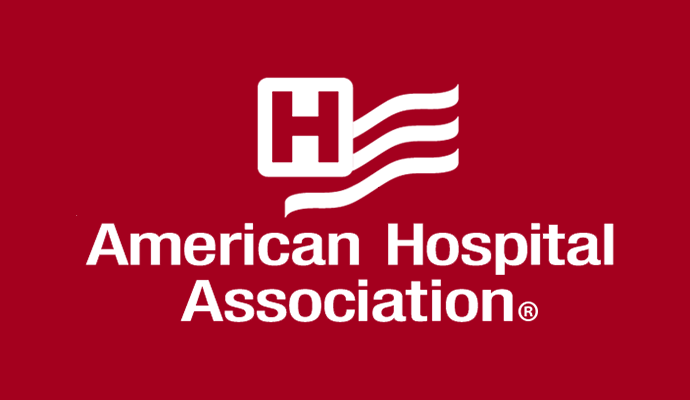AHA Condemns FTC’s Unconstitutional Antitrust Enforcement Practices
FTC’s antitrust enforcement practices used in Illumina Inc. v FTC are unconstitutional and disproportionately impact hospital mergers, AHA said.

Source: AHA Logo
- The American Hospital Association (AHA) is urging an appeals court to prevent the Federal Trade Commission (FTC) from breaking up a biotechnology acquisition, stating that the agency’s antitrust enforcement practices are unconstitutional.
Illumina Inc., a biotechnology company that provides DNA sequencing, acquired GRAIL, a company that makes a multi-cancer early detection (MCED) test, in August 2021. Before the deal was finalized, FTC had filed an administrative complaint to block the $7.1 billion acquisition.
The agency noted that Illumina was the only provider of DNA sequencing that GRAIL uses for its MCED tests, raising concerns that Illumina would raise prices or refuse to sell to other firms. FTC alleged that the acquisition would diminish competition and innovation in the US market for MCED tests, which can be used to detect up to 50 types of cancer.
Despite the regulatory pushback, the acquisition prevailed. However, FTC has not let up.
In April 2023, FTC ordered Illumina to divest GRAIL, reversing an Administrative Law Judge’s Initial Decision dismissing the antitrust charges. Illumina has appealed the order.
AHA filed a friend-of-the-court brief, requesting that the Fifth Circuit Court of Appeals reverse FTC’s order and allow Illumina to maintain ownership of GRAIL.
The trade organization criticized FTC’s enforcement practices and said they were unconstitutional.
“With one-sided procedures that favor the agency and a win-loss tally that proves it, the only possible conclusion is that the FTC is not a fair, neutral, and unbiased tribunal, as required by the Due Process Clause,” the brief stated.
The agency’s enforcement practices go against three due process principles, according to AHA. Due process requires a fair trial and tribunal, rejects arbitrariness, and protects the appearance and reality of fairness.
The brief indicated how FTC, acting as prosecutor, approved its own complaint and then acted as the adjudicator to reverse the decision when the Administrative Law Judge ruled against the Commission. These actions were unconstitutional and did not comply with due process principles, AHA maintained.
These common practices from the FTC regarding antitrust regulation significantly impact hospitals and health systems, AHA said.
“Whether it is an acquisition that prevents a rural hospital from closing or, as here, the future of cutting-edge, life-saving medical technology, the FTC’s unfair practices have stood in the way of improved healthcare again and again,” the organization wrote. “It is long past time to put an end to the FTC’s unconstitutional enforcement practices. This Court should reverse.”
According to AHA, hospital mergers face disproportionate scrutiny from FTC. Hospital mergers can help small and rural hospitals remain open when facing financial struggles, preserving access to care for underserved populations.
The brief also cited research showing how hospital acquisitions increase hospital scale, reduce costs, and improve quality of care.
The increased antitrust scrutiny on hospital mergers may exacerbate financial challenges, AHA said. For example, a small or rural hospital merging into a large healthcare system to stay afloat will likely not have the resources to defend against prolonged FTC enforcement actions and litigation.
Larger healthcare systems have also abandoned proposed transactions to avoid expensive administrative litigation with FTC, the brief noted.
“Unconstitutional enforcement actions thus derail efficient mergers that would improve patient care simply because hospitals know that the FTC’s enforcement process is arbitrary, biased, and ultimately stacked against them,” AHA wrote. “That may count as a victory for the FTC, but it is not a victory for patients, hospitals, the economy, or the rule of law.”
